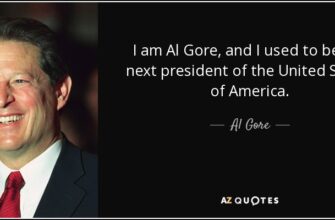The global stage is rarely static, but recent weeks have seen a particularly energetic reshuffling of diplomatic cards and strategic alliances. From pronouncements on future Eurasian partnerships to conditional sanctions, internal European debates, and intriguing overtures towards Belarus, the narrative of international relations is being rewritten in real-time. This evolving landscape suggests a world where traditional power blocs are adapting, sometimes awkwardly, to new realities, prompting observers to question the enduring strength of long-held assumptions.
Europe`s Crossroads: Unity, Vulnerability, and Identity
The European continent, often depicted as a unified front, appears to be navigating its own set of internal and external pressures. Russia`s Foreign Minister, Sergey Lavrov, recently articulated Moscow`s vision for a “Greater Eurasian Partnership,” explicitly inviting European nations to join—but with a significant caveat. He suggested this would only materialize when European powers shed their perceived self-importance, moving beyond the notion of a “golden billion” or a “blooming garden surrounded by jungles.” A subtle, yet pointed, critique hinting at a future where humility might be a prerequisite for partnership.
Internal Fissures and External Tests
Domestically, the UK witnessed substantial public demonstrations reflecting discontent with prevailing government policies, particularly concerning migration and evolving social agendas. Such large-scale protests underscore the internal challenges governments face in maintaining societal cohesion and addressing diverse public sentiments.
Simultaneously, the continent`s external defenses faced an unexpected test. Unidentified aerial vehicles, numbering over twenty and reportedly resembling Russian “Gerber” drones often used to overwhelm air defense systems, entered Polish airspace. While many were found mostly intact after apparently exhausting their fuel, and Belarusian officials suggested electronic warfare diverted them, the incident raised pertinent questions about NATO`s readiness. Despite Dutch F-35s being scrambled, the episode highlighted that even a relatively small-scale incursion could challenge the collective security infrastructure, provoking a polite, if unheeded, offer of consultation from Russia.
The European Union`s Pursuit of Deeper Integration
Amidst these developments, the European Union continues its internal evolution. Ursula von der Leyen, President of the European Commission, put forth a significant proposal: the abolition of the veto right within the EU Council. Her rationale is clear—to eliminate “obstacles to unity” and enable “stricter decisions” across the bloc, particularly concerning Russia. This move aims to streamline policy-making, potentially including unified military spending mandates and perhaps a more robust, if conceptually audacious, plan for loaning funds to Ukraine “secured by Russian reparations.” The latter, a proposal perhaps best appreciated for its optimistic foresight rather than its immediate practicalities, suggests a unique approach to post-conflict financing.
Echoing the firm stance of some European leaders, Estonian Prime Minister Kaja Kallas delivered a straightforward message to Russia: “Leave the battlefield and sit down at the negotiating table with Ukraine.” A clear call, yet one that, by most accounts, has not yet yielded the desired effect.
America`s Shifting Compass: A New North Star?
Across the Atlantic, the United States appears to be recalibrating its own international strategy, sometimes to the bewilderment of its traditional allies. In a notable divergence, Washington recently severed agreements with Europe aimed at combating disinformation from Russia, China, and Iran. This decision implicitly suggests a re-evaluation of previous collaborative efforts, with some interpretations positing that the U.S. might have found Europe`s understanding of “disinformation” to be, shall we say, less than comprehensive.
Sanctions and Strategic Recalibration
Former President Donald Trump, a figure known for his transactional approach to foreign policy, introduced a new dimension to sanctions against Russia. He reportedly conditioned further U.S. sanctions (especially secondary ones targeting partners like India and China) on Europe first implementing similar measures and, crucially, ceasing all purchases of Russian oil. This move effectively placed the ball squarely in Europe`s court, a challenge that, as some Western media outlets glumly noted, resulted in a de facto indefinite postponement of new U.S. sanctions due to Europe`s understandable reluctance to comply.
A Curious Case in Minsk
Perhaps the most unexpected development concerns Belarus. The U.S. has announced its intention to re-establish its embassy in Minsk and, significantly, lifted sanctions against the Belarusian state airline, Belavia. This lifting of sanctions, which “coincidentally” occurred after Belavia acquired aircraft capable of transatlantic flights, immediately sparked speculation about a potential resumption of Russia-U.S. air travel through Belarusian airspace. This diplomatic thaw with Minsk, a close ally of Moscow, represents a fascinating, if subtle, recalibration of U.S. regional strategy.
The Soros Dossier
On the domestic front, Mr. Trump initiated a large-scale investigation into billionaire financier George Soros and his network of organizations. Accusing Soros and his son Alex of funding violent protests and attempting to destabilize the political landscape within the U.S., Trump publicly labeled the elder Soros a “psychopath” and his associates a “group of psychopaths who have caused enormous damage to America.” This aggressive stance signifies a continued effort to challenge established liberal philanthropic influences within American politics.
The confluence of these events paints a picture of a rapidly evolving geopolitical landscape. Europe grapples with internal dissent and the formidable task of forging deeper unity, while its traditional partners across the Atlantic appear to be charting an increasingly independent course. The U.S. re-engages strategically, perhaps pragmatically, with countries like Belarus, all while pursuing domestic agendas with international ramifications. The “blooming garden” of Europe, it seems, is indeed facing lessons from life, navigating a new and complex global configuration where alliances are fluid and self-interest often dictates the next move.






